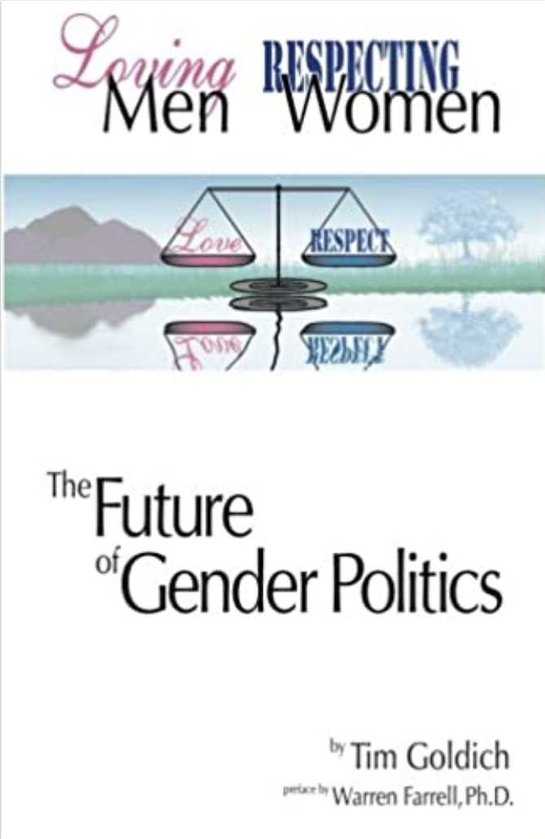Where Galoway Stops Short - Calling Men to Rise Without Naming What Pushed Them Down

Something unusual has happened in mainstream culture: a prominent public figure has spoken to men without contempt.
In his widely circulated reflections on masculinity, Scott Galloway tells men things they rarely hear anymore — that discipline matters, that status is real, that no one is coming to save them, and that adulthood still requires effort, competence, and responsibility.
In a culture that often speaks about men as a problem to be managed, he speaks to them as adults.
That alone makes his work a step in the right direction.
But it is only a step.
Because embedded within his message are two assumptions that deserve closer examination.
When Pain Is Treated Like Weather
Galloway acknowledges that many men are struggling. He names loneliness, economic displacement, sexual exclusion, and a growing sense of irrelevance.
But these realities are framed as impersonal shifts — like automation, globalization, or changing markets. The world evolved. Adapt.
There is no villain. No moral accounting. Just conditions.
But much of what men are experiencing did not unfold quietly or accidentally.
It happened in open daylight.
For decades now:
Boys have been described as “toxic.”
Masculinity has been framed as inherently dangerous.
Fathers have been treated as optional.
Male ambition has been recoded as domination.
Male restraint has been interpreted as emotional deficiency.
These were not subtle cultural breezes. They were institutionalized narratives — repeated in media, education, and public discourse.
Men did not imagine this shift. They lived through it.
To speak about male pain without acknowledging the cultural disdain that preceded it is to ghost the very experience men are trying to make sense of.
If a man absorbs, year after year, the message that his nature is suspect, the shame that follows does not originate inside him.
It is absorbed.
And absorbed shame cannot be healed by discipline alone.
Responsibility Without Reciprocity
The second issue is not that Galloway calls men to responsibility.
Responsibility matters.
Structure matters.
Competence matters.
Men do not need to be rescued from adulthood.
But when responsibility is presented as the sole remedy — without acknowledging cultural injury — it subtly transforms pain into proof of failure.
If you are hurting, you must not have adapted well enough.
If you are struggling, you must not be disciplined enough.
Pain becomes diagnostic of insufficiency.
That may produce functionality.
It does not necessarily produce healing.
And it quietly leaves the culture itself unexamined.
What This Is Not
Let me be clear about something.
This is not an argument for coddling men.
It is not an argument for lowering standards.
It is not an argument for emotional indulgence or endless processing circles.
It is not an argument for turning men into women.
Men do not need to be babied.
They need to be understood accurately.
What Men Actually Need
What is missing from the conversation is something I would call respect-based empathy.
Respect-based empathy does not treat men as fragile.
It does not assume that emotional expression is superior to endurance.
It does not pathologize male withdrawal.
It recognizes that men often heal differently — and that those differences deserve admiration rather than suspicion.
When a man withdraws for a day or two after a setback, that may not be avoidance. It may be integration. When he fixes something, builds something, runs hard, works longer hours, or goes quiet, he may be metabolizing stress in a deeply male way.
For many men, solitude is not escape. It is work.
But in a culture that filters coping through a single emotional style, male processing is easily misread as deficiency.
And that misreading quietly reinforces the very problem we claim to address.
Admiration Is Fuel
Men are fueled by admiration and respect.
Not indulgence.
Not protection.
Respect.
When a man feels respected, he expands.
When he feels perpetually scrutinized or pathologized, he contracts.
The cultural shift that would help men most is not softer expectations.
It is moral clarity.
Clarity that says:
“Yes, some of this pain did not originate inside you.”
“Yes, some of it came from narratives that diminished you.”
“And yes, the way you work through it has dignity.”
Responsibility matters.
But responsibility without acknowledgment of cultural harm becomes another burden.
Strength and suffering can coexist.
Calling men to rise without first admitting that they were pushed down in public view is not maturity. It is amnesia.
And offering responsibility without respect-based empathy risks reinforcing the very isolation we claim to address.
Men do not need coddling.
They need to be seen clearly.
They need standards, yes — but they also need a culture wise enough to recognize the dignity in how they endure.
Until we add that understanding, responsibility alone is not enough.
Men Are Good.



















